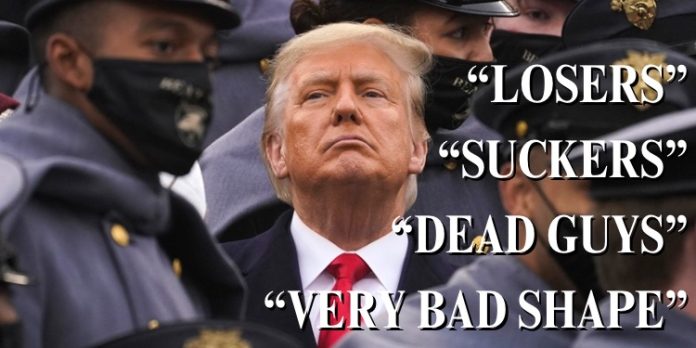San Antonio, known as Military City, USA, is home to countless active-duty service members, veterans, and their families. Here, respect for the military runs deep. So, when former President Donald Trump made yet another disparaging comment about our nation’s heroes, the response was swift and unforgiving.
During a recent pro-Israel event in New Jersey, Trump compared the Presidential Medal of Freedom to the Congressional Medal of Honor, the highest military award for valor in battle, and shockingly declared the civilian award to be “much better.” His reasoning? According to Trump, “everyone gets the Congressional Medal of Honor. They’re soldiers. They’re either in very bad shape because they’ve been hit so many times by bullets or they’re dead.”
This statement has sparked intense outrage, particularly among veterans and military families. The Veterans of Foreign Wars, representing 1.5 million members, condemned Trump’s remarks as “asinine,” accusing him of diminishing the significance of the Medal of Honor and disrespecting the sacrifices made by those who have given their lives for our country. “These asinine comments not only diminish the significance of our nation’s highest award for valor, but also crassly characterize the sacrifices of those who have risked their lives above and beyond the call of duty,” said Al Lipphardt, the VFW’s commander in chief.
This isn’t the first time Trump has shown a lack of respect for the military. His former chief of staff, John Kelly, confirmed that Trump privately referred to fallen soldiers as “suckers” and “losers.” During his 2015 presidential campaign, Trump even belittled the late Senator John McCain, a Vietnam War hero who spent years as a prisoner of war, by saying, “I like people who weren’t captured.”
For those of us in San Antonio, these comments are not just offensive—they’re personal. We live among heroes who have served with honor and distinction. Many of us have family members who have risked everything to protect our nation. The thought that someone who once held the highest office in the land would dismiss their sacrifices so casually is nothing short of disgusting.
In sharp contrast to Trump’s disrespect, Vice President Kamala Harris has consistently shown deep respect for our military. Responding to Trump’s latest comments, her campaign stated, “For him to insult Medal of Honor recipients, just as he has previously attacked Gold Star families, mocked prisoners of war, and referred to those who lost their lives in service to our country as ‘suckers’ and ‘losers,’ should remind all Americans that we owe it to our service members, our country, and our future to make sure Donald Trump is never our nation’s commander in chief again.”
Here in San Antonio, where military service is a way of life, we know the true value of those who wear the uniform. Our military members are not just names on a medal or numbers in a speech—they are our neighbors, our friends, and our family. Their bravery and dedication allow us to live in safety and freedom. As we reflect on Trump’s shameful words, let’s take a moment to think about those we know who have served. Even if you don’t personally know someone in the military, you likely feel safer knowing they are out there, standing guard for all of us.
The bottom line is that our military deserves respect, gratitude, and unwavering support. It’s not just about medals or titles—it’s about honoring the sacrifices made by those who serve. As we move forward, let’s ensure that our leaders embody the values we hold dear in Military City, USA: respect, honor, and a deep appreciation for those who protect our way of life.
Each Medal of Honor case requires evidence, typically witness statements and corroborating information such as video, recorded radio transmissions, maps and even autopsy results. Nominations are typically submitted by a commanding officer and must work their way through a multitiered approval process through a U.S. troop’s branch of service, to a service secretary, the defense secretary, and ultimately the president








